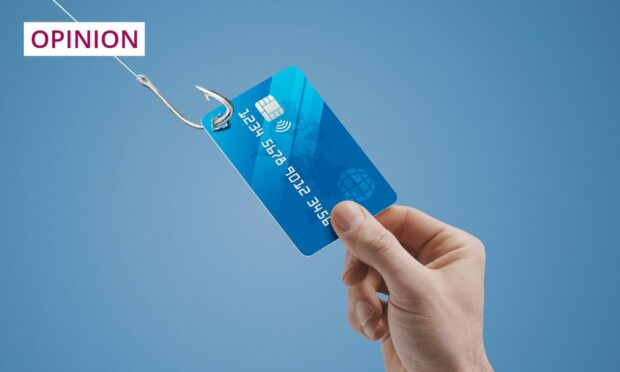I was anxious about keeping one step ahead of that bunch of shoe scammers in the States, and now I know why.
Weeks after my first encounter online, I felt my world caving in. I’d had a lucky escape, but now it seemed the American scammers were flushing our bank account before my very eyes.
I mentioned briefly the origins of this financial drama previously, but not the scary sequel.
Suspected of being targeted in a criminal “account takeover”, as the banks call it; hidden hands dipping in. It turned out to be a salutary lesson, especially at a time when online scams continue to surge across the UK by almost 25%.
My misfortune was triggered by a desire for a smart pair of top-brand shoes at a rock-bottom price. You know what they say: if it looks too good to be true…
I’m one of those impulsive personalities who succumbs when something becomes stuck in my head: I have to have it – none of this waiting around until Christmas nonsense.
I fell for the online patter about a once-in-a-lifetime “flash sale” – just 30 minutes to make my purchase. It’s a tried and tested formula, which is fine when deployed by honest and reputable companies; “while stocks last” and so on. But not in the wrong hands.
Luckily, my suspicious journalistic instincts finally kicked in.
I smelled a rat
As my eager finger hovered over the pay button, after filling in all my banking and personal details, I came to my senses. I smelled a rat and backed out faster than Sturgeon exiting Bute House.
Cancelling our bank cards was a sensible added precaution on the advice of my building society, and I found out later that it was indeed a “sophisticated” attempted scam.
Our banking emergency was complicated by having to change address – as we were away from Aberdeen due to a family crisis – so that new bank cards could be sent to my wife and me.
It seemed straightforward at the time. But therein lay the seeds of our later misfortune; everything seemed sunny, but little did I know storm clouds were rolling my way. They finally caught up with me in Stonehaven a few days ago.
Putting our account on ice (with a flake)
A card machine at the famous Aunty Betty’s ice cream and sweets parlour rejected my contactless and manual attempts to pay for five cones. It wasn’t just the ice creams which were melting as my pulse raced.
I used my credit card instead; I ask you – what an embarrassment. I could imagine what onlookers were thinking. Even a thieving seagull – looking to scam us from a railing by our table outside – looked pityingly at me.
To compound things, my wife found her card on our joint account blocked, too. Time to take a peek at our trusty banking app for any important messages.
Nothing to be seen – apart from our current account details vanishing into thin air off the app. It was as though we no longer existed.
The sense of dread stretched from my scrambled brain to my feet, where those fancy fake shoes should have been. I was suddenly feeling the awesome power of the banks – like being buffeted by the slipstream of a passing juggernaut.
It took 90 stressful minutes on the phone to my building society, with three different fraud investigators of escalating seniority, to sort it out.
The curse of the shoe scammers
Our account had been frozen instantly to protect us, as they suspected – mistakenly – that it had been taken over by criminals, but someone failed to alert us. A combination of red flags made the system scrutinise us as ferociously as the velociraptor searching for children in the Jurassic Park kitchens.
The main alarm was changing our address again after arriving home – so soon after the first switch. Aggravating factors were “the curse of the shoe scammers” – a record of that being logged along with new cards issued – and the fact we had stayed in a “fraud hotspot” while in another part of the UK.
Finally, our account was brought back to life. I was thankful, of course.
You’ll have to be in a ‘grossly negligent’ minority not to qualify for compensation, rather than a complete idiot
But I wondered if they were being ultra-zealous due to new banking laws on the way next year to force financial institutions to reimburse victims of “authorised push payment” fraud, as it’s known in the trade. It promises to be an expensive business, running into many millions for the banking industry.
In around two weeks, the Payments Systems Regulator (PSR), which is overseeing it, concludes a consultation into whether the old proverb about “a fool and his money being easily parted” would bar some people from claiming money back. People like me, in other words.
But the PSR has clarified things already. You’ll have to be in a “grossly negligent” minority not to qualify for compensation, rather than a complete idiot. Somehow that made me feel better.
David Knight is the long-serving former deputy editor of The Press and Journal


